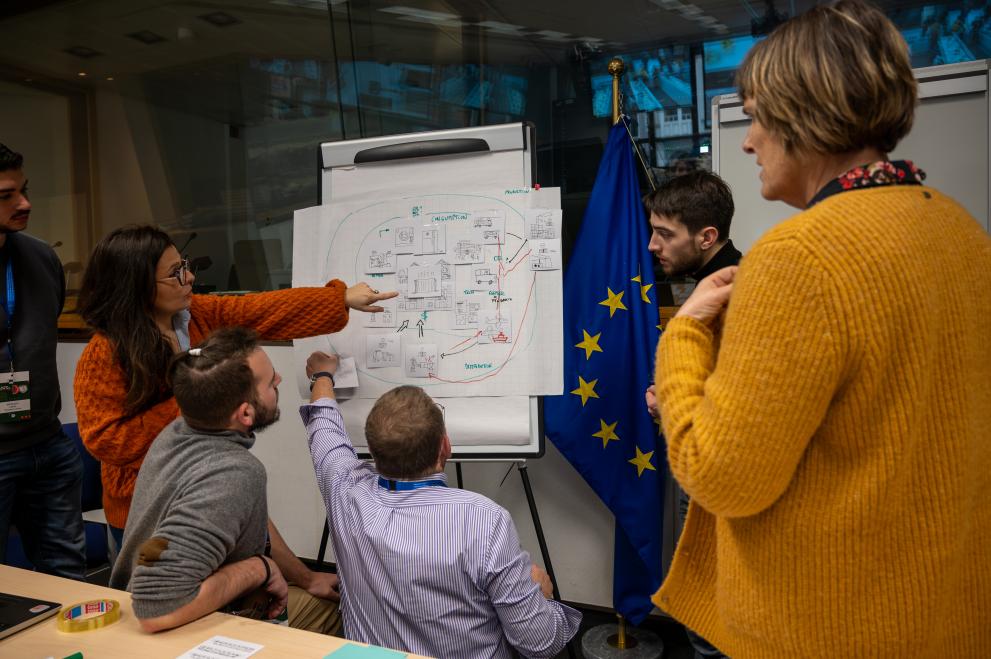Citizens of the European Panel on Energy Efficiency have presented their recommendations to Maroš Šefčovič, the Executive Vice-President of the European Commission in charge of the Green Deal, inter-institutional relations, and foresight. These 13 recommendations will inform future European Union initiatives based on the Energy efficiency first principle.
The final recommendations cover specific fields: the transport and building sectors, as well as drivers that encourage citizens, including the most vulnerable, local governments, and Member States to accelerate the energy transition to combat climate change and achieve carbon neutrality.
The proposals resulting from these recommendations will feed into the work of the European Commission, which plans to publish its very first recommendation on the principle of energy efficiency primacy this year. On this matter, citizens want the EU to only finance Member States that comply with its directives (and/or whose progress is measurable). Aware of the disparities in situations depending on the governments and climate of each country, citizens emphasized the importance of diversifying energy sources in each Member State based on their unique characteristics and resources. However, the Panel urges the EU to be firmer with countries that do not respect the directives on energy efficiency.
Among other recommendations: the enhancement of the attractiveness of public transport and its rationalization to ensure more energy-efficient transport of goods and people in Europe and to combat unfair competition from air travel and the lack of networks in some regions of Europe. In the building sector, one of the largest producers of greenhouse gas emissions, a greater skilled workforce in the EU is seen as a crucial lever, just as more coherent financial mechanisms and aids must be implemented in each country to encourage more citizens (particularly small homeowners) to renovate their housing.
Participants also delved into the topic of energy communities and the necessary support (primarily by local authorities) for their deployment in European countries to avoid energy waste. Today, the absence of energy distributors in energy community systems is an obstacle to achieving zero waste. Also, the European Commission could encourage Member States to issue energy efficiency certificates to private companies if they work with energy communities. Citizens expressed a desire to focus on the positive economic impact of non-energy consumption, particularly by applying fair rates for the excess energy produced by these communities.
The 150 citizens, randomly selected from the 27 EU countries, worked over three weekends on “how to make the energy system safer and cleaner while considering the entire chain: production, distribution, and consumption.” Thanks to the work of interpreters, each participant was able to express themselves in their native language (24 languages are represented). The European Commission’s citizen panels were created following the Conference on the Future of Europe (2021-2022). Since then, several citizen panels have taken place: food waste, the virtual world… The current one focuses on “how to tackle hatred in our society.”







